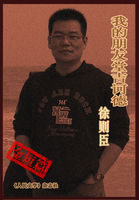"Law too was naturally never able completely to eradicate the above-named basis" (namely, "the basis of the precious metals"), "but he pushed the issue of notes to its extreme limit, that is to say, to the collapse of the system" (p. 94).
In reality, however, these paper butterflies, mere money tokens, were intended to flutter about among the public, not in order to "eradicate" the basis of the precious metals, but to entice them from the pockets of the public into the depleted treasuries of the state. [96]
To return to Petty and the inconspicuous role in the history of economics assigned to him by Herr Dühring, let us first listen to what we are told about Petty's immediate successors, Locke and North. Locke's Considerations on Lowering of Interest and Raising of Money , and North's Discourses upon Trade , appeared in the same year, 1691.
"What he" (Locke) "wrote on interest and coin does not go beyond the range of the reflections, current under the dominion of mercantilism, in connection with the events of political life" (p. 64).
To the reader of this "report" it should now be clear as crystal why Locke's Lowering of Interest had such an important influence, in more than one direction, on political economy in France and Italy during the latter half of the eighteenth century.
"Many businessmen thought the same" (as Locke) "on free play for the rate of interest, and the developing situation also produced the tendency to regard restrictions on interest as ineffective. At a period when a Dudley North could write his Discourses upon Trade in the direction of free trade, a great deal must already have been in the air, as they say, which made the theoretical opposition to restrictions on interest rates seem something not at all extraordinary" (p. 64).
So Locke had only to cogitate the ideas of this or that contemporary "businessman", or to breathe in a great deal of what was "in the air, as they say" to be able to theorise on free play for the rate of interest without saying anything "extraordinary"! In fact, however, as early as 1662, in his Treatise on Taxes and Contributions , Petty had counterposed interest, as rent of money which we call usury to rent of land and houses, and lectured the landlords, who wished to keep down by legislation not of course land rent, but the rent of money, on the vanity and fruitlessness of making civil positive law against the law of nature. in his Quantulum cunque (1682) he therefore declared that legislative regulation of the rate of interest was as stupid as regulation of exports of precious metals or regulation of exchange rates. In the same work he made statements of unquestionable authority on the raising of money (for example, the attempt to give sixpence the name of one shilling by doubling the number of shillings coined from one ounce of silver).
As regards this last point, Locke and North did little more than copy him. In regard to interest, however, Locke followed Petty's parallel between rent of money and rent of land, while North goes further and opposes interest as rent of stock to land rent, and the stocklords to the landlords.
And while Locke accepts free play for the rate of interest, as demanded by Petty, only with reservations, North accepts it unconditionally.
Herr Dühring -- himself still a bitter mercantilist in the "more subtle" {55} sense -- surpasses himself when he dismisses Dudley North's Discourses upon Trade with the comment that they were written "in the direction of free trade" {64}. It is rather like saying of Harvey that he wrote "in the direction" of the circulation of the blood. North's work -- apart from its other merits -- is a classical exposition, driven home with relentless logic, of the doctrine of free trade, both foreign and internal -- certainly "something extraordinary" {64} in the year 1691!
Herr Dühring, by the way, informs us that North was a "merchant" and a bad type at that, also that his work "met with no approval" {64}.
Indeed! How could anyone expect a book of this sort to have met with "approval"among the mob setting the tone at the time of the final triumph of protectionism in England? But this did not prevent it from having an immediate effect on theory, as can be seen from a whole series of economic works published in England shortly after it, some of them even before the end of the seventeenth century.
Locke and North gave us proof of how the first bold strokes which Petty dealt in almost every sphere of political economy were taken up one by one by his English successors and further developed. The traces of this process during the period 1691 to 1752 are obvious even to the most superficial observer from the very fact that all the more important economic writings of that time start from Petty, either positively or negatively. That period, which abounded in original thinkers, is therefore the most important for the investigation of the gradual genesis of political economy. The "historical depiction in the grand style" {556}, which chalks up against Marx the unpardonable sin of making so much commotion in Capital about Petty and the writers of that period, simply strikes them right out of history. From Locke, North, Boisguillebert and Law it jumps straight to the physiocrats, and then, at the entrance to the real temple of political economy, appears -- David Hume. With Herr Dühring's permission, however, we restore the chronological order, putting Hume before the physiocrats.
Hume's economic Essays appeared in 1752. In the related essays: of Money , of the Balance of Trade , of Commerce , Hume follows step by step, and often even in his personal idiosyncrasies, Jacob Vanderlint's Money Answers All Things , published in London in 1734. However unknown this Vanderlint may have been to Herr Dühring, references to him can be found in English economic works even at the end of the eighteenth century, that is to say, in the period after Adam Smith.














